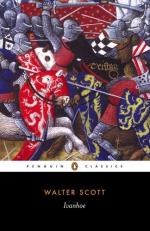|
This section contains 4,153 words (approx. 14 pages at 300 words per page) |

|
SOURCE: "Scott's The Two Drovers: The Judge's Charge," in Studies in Scottish Literature, Vol. VII, No. 4, April, 1970, pp. 255-64.
In the essay below, Robb explains the function and effect of the Judge's charge to the jury in 'The Two Drovers."
Sir Walter Scott's "The Two Drovers" consistently receives high praise. Walter Allen speaks of it and "The Highland Widow" as the two works in which Scott achieved tragedy and as "two great short stories,"1 and J. T. Christie, writing on Chronicles of the Canongate, to which they belong, declares that "The Two Drovers" is far superior to "The Highland Widow" and "might well claim a place among the best dozen English short stories of the century."2 Adapting a phrase from the charge of the Judge at the end of the story, Kurt Wittig sees the tragedy as arising from men's acting "in ignorance of each other's prejudices"3; and...
|
This section contains 4,153 words (approx. 14 pages at 300 words per page) |

|


